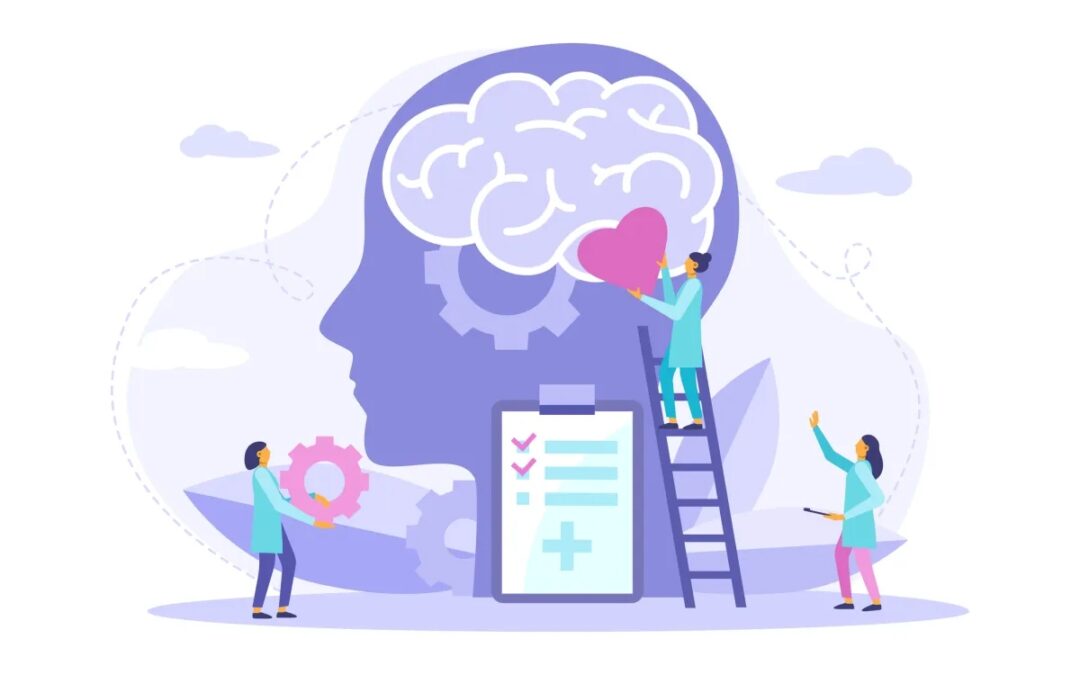Mental health crises can be overwhelming and isolating experiences, making it difficult to know where to turn for help. Whether you’re experiencing a crisis yourself or supporting someone else, understanding the best ways to reach out for support is crucial.
This guide explores various strategies for seeking help during a mental health crisis, emphasizing the importance of timely intervention and the variety of resources available.
Recognizing a Mental Health Crisis
Before discussing how to reach out, it’s important to recognize the signs of a mental health crisis. These can vary widely but often include:
- Severe anxiety or panic attacks
- Suicidal thoughts or behaviors
- Psychosis (e.g., hallucinations or delusions)
- Extreme mood swings
- Inability to perform daily tasks
- Substance abuse
Immediate Steps to Take
Assess Safety – The first step in a mental health crisis is to assess the immediate safety of yourself or the person in crisis. If there is an imminent risk of harm, it’s essential to seek emergency assistance.
Example: If someone is threatening suicide, call emergency services immediately. Stay with the person until help arrives, if it is safe to do so.
Stay Calm and Offer Support – Panic can exacerbate the situation. Try to remain calm and offer a supportive presence.
Example: Use a calm voice and reassuring words. Saying something like, “I’m here for you, and we’re going to get through this together,” can provide comfort.
Professional Help
Emergency Services
In a life-threatening situation, calling emergency services should be the first action. Emergency responders can provide immediate assistance and transport to a hospital if necessary.
Crisis Hotlines
Crisis hotlines are an invaluable resource for immediate support. They provide confidential help and can guide you through the next steps.
Depending on your location, the hotlines are typically available 24/7 and staffed by trained professionals who can offer support and resources.
Mental Health Professionals
Therapists and Counselors
Reaching out to a mental health professional such as a therapist or counselor is a critical step in addressing a mental health crisis. They can provide therapy, coping strategies, and sometimes medication management.
Example: If you already have a therapist, contact them immediately to schedule an urgent appointment. If you don’t, many therapists offer emergency consultations.
Psychiatrists
Psychiatrists are medical doctors who specialize in mental health. They can diagnose and treat mental health conditions and prescribe medication.
Example: In severe cases such as psychosis, a psychiatrist can provide the necessary medical intervention, including hospitalization if needed.
Online Resources and Telehealth
Online Therapy Platforms
Online therapy platforms have made mental health support more accessible. These services can provide immediate support through video calls, chat, or messaging.
Examples:
- BetterHelp
- Talkspace
- 7 Cups
These platforms can connect you with licensed therapists quickly, often within 24 hours.
Telehealth Services
Telehealth has expanded access to mental health services, allowing individuals to receive care from the comfort of their homes. Many mental health providers now offer telehealth appointments.
Example: If you’re unable to leave your home, contact your healthcare provider to see if telehealth options are available.
Community Resources
Support Groups
Support groups can offer a sense of community and understanding. They provide a space to share experiences and receive support from others facing similar challenges.
Examples:
- Alcoholics Anonymous (AA)
- Narcotics Anonymous (NA)
- Depression and Bipolar Support Alliance (DBSA)
Many organizations offer online and in-person meetings, providing flexibility in accessing support.
Local Mental Health Services
Many communities have local mental health services, including crisis intervention teams and mental health clinics. These services can provide immediate assistance and longer-term support.
Example: Contact your local health department or search online for mental health services in your area.
Personal Support Network
Friends and Family
Reaching out to friends and family can provide immediate emotional support. They can offer comfort, understanding, and help with accessing professional care.
Example: Share your feelings with a trusted friend or family member. They can help you make phone calls, drive you to appointments, or simply listen.
Workplace Support
Many workplaces offer Employee Assistance Programs (EAPs) that provide confidential counseling and support for employees experiencing mental health issues.
Example: Contact your HR department to learn about EAP services available to you.
Self-Help Strategies
Mindfulness and Relaxation Techniques
Practicing mindfulness and relaxation techniques can help manage acute stress and anxiety. Techniques such as deep breathing, meditation, and progressive muscle relaxation can be effective.
Example: Use a mindfulness app like Headspace or Calm to guide you through relaxation exercises.
Journaling
Writing down your thoughts and feelings can provide an outlet for emotions and help you gain perspective on your situation.
Example: Keep a journal to track your mood and triggers. This can also be useful information to share with a therapist.
Exercise
Physical activity can have a positive impact on mental health by reducing stress and improving mood. Even a short walk can be beneficial.
Example: Incorporate regular exercise into your routine, such as yoga, walking, or swimming.
Barriers to Reaching Out
Despite the availability of resources, many people face barriers when trying to reach out during a mental health crisis. Understanding and addressing these barriers is essential for effective intervention.
Stigma
Stigma surrounding mental health can prevent individuals from seeking help. Education and open conversations about mental health can help reduce stigma.
Example: Share mental health awareness materials with your community to foster understanding and support.
Financial Constraints
The cost of mental health care can be a significant barrier. However, many resources offer low-cost or free services.
Example: Look for sliding scale clinics or community mental health centers that offer services based on income.
Lack of Awareness
Many people are unaware of the resources available to them. Publicizing mental health resources can help bridge this gap.
Example: Distribute information about crisis hotlines, local services, and online resources through social media, community centers, and healthcare providers.
Case Studies
Case Study 1: Immediate Intervention
John, a 35-year-old man, experiences severe depression and suicidal thoughts. Feeling overwhelmed, he calls the National Suicide Prevention Lifeline.
The crisis counselor helps John develop a safety plan and connects him with local mental health services. John begins therapy and starts to feel more hopeful about his future.
Case Study 2: Utilizing Online Resources
Sara, a 28-year-old woman, has a panic attack during the night. Unable to contact her therapist, she uses the Crisis Text Line.
The text counselor guides Sara through breathing exercises and helps her calm down. Sara schedules an urgent appointment with her therapist the next day and discusses strategies to manage her anxiety.
Case Study 3: Community Support
Mark, a 50-year-old man, struggles with substance abuse. He attends a local AA meeting, where he finds support and understanding from others who have faced similar challenges.
Through AA, Mark learns about additional resources and begins working with a therapist who specializes in addiction.
Conclusion
Reaching out during a mental health crisis is a critical step towards recovery. Whether through emergency services, professional help, online resources, community support, or personal networks, there are many ways to find the support needed.
Understanding the options and overcoming barriers to access can make a significant difference in the outcome of a mental health crisis. By taking action and seeking help, individuals can move towards healing and regain control of their lives.

